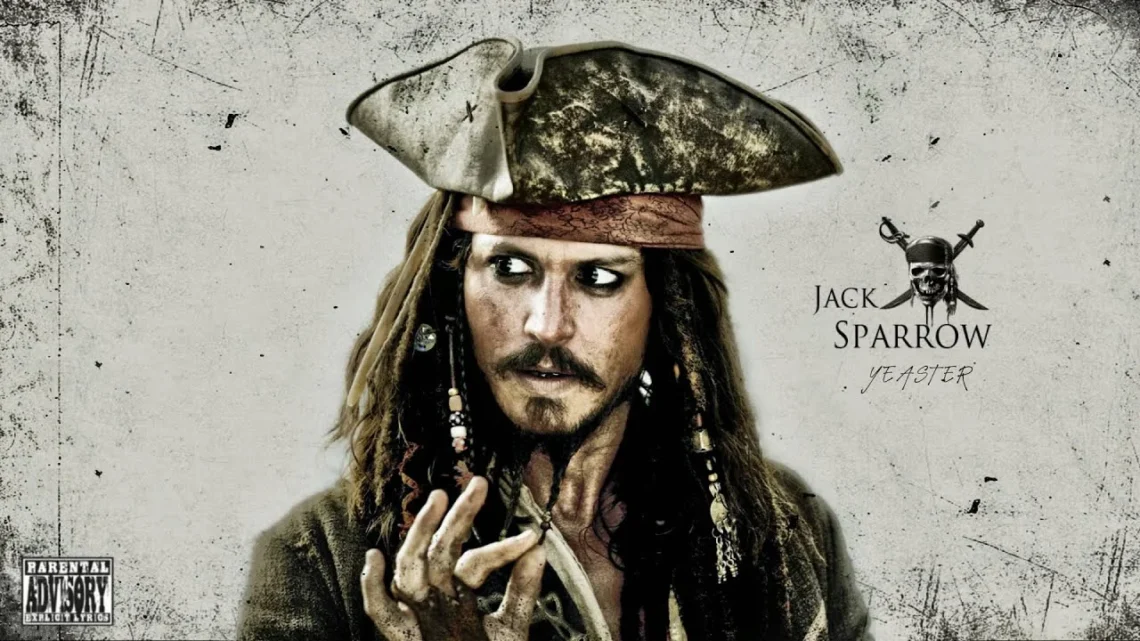When you hear Jack Şoparov, you might assume it’s a person’s name. But in Turkish popular culture, Jack Şoparov is a meme / creative nickname inspired by Captain Jack Sparrow from Pirates of the Caribbean. It’s part of a larger phenomenon of localizing or playing with foreign names for humor, identity, and digital culture.
What Is Jack Şoparov? Origins & Definition
Jack Şoparov is essentially a playful, Turkish form of the name “Jack Sparrow.” According to sources:
- The blog JPosting describes “Jack Şoparov” as a humorous Turkish twist on Captain Jack Sparrow, turning Sparrow into a name that fits Turkish phonetics and adding an “ov” ending.
- The “ş” (s-cedilla) is a letter in Turkish, making “Şoparov” read more natively in Turkish pronunciation.
- The name has become a meme identity, used in videos, social media posts, jokes, and even cosplay or local productions.
- Thus, Jack Şoparov is not a distinct historical or biographical figure, but a cultural remix / meme persona born from global pop culture (the Johnny Depp pirate) as translated into Turkish online humor.
Because of its nature, we won’t find conventional records (birth, education, career) — it lives in the realm of internet culture.
The Meme Culture Behind Turkish Renaming
Why do Turkish internet users take foreign names like “Jack Sparrow” and convert them to Jack Şoparov or other variants? This reflects a broader pattern in meme practices and cross-cultural adaptation.
Localization & Linguistic Play
- Turkish often adapts foreign words so they match local phonetics or morphological patterns. By converting Sparrow → Şoparov, the name becomes easier to pronounce or comedic within Turkish ears.
- The “-ov” suffix evokes names from Eastern Europe / Central Asia / Slavic languages, which adds a playful exotic flavor.
Humor through Familiarity
- Memes thrive on the familiar yet altered. Everyone knows “Jack Sparrow,” so twisting his name is amusing because it is both recognizable and absurd.
- It gives fans a way to own global culture — making it local, inserting inside jokes, references to Turkish contexts.
Cultural Identity & Internet Ownership
- This is part of memetic appropriation, especially in non-English cultures, where imported media gets localized through jokes, remixes, and adaptation.
- It strengthens community identity: people in Turkey or Turkish speakers can share and laugh about “Kaptan Jack Şoparov” (Captain Jack Şoparov) in a language and frame they understand.
Spread via Short Video Platforms
- Turkish TikTok / Instagram / Reels users make short comedy clips or edits of pirate scenes, but change the name to Şoparov.
- Hashtags like #KaptanJackŞoparov, #JackŞoparov appear in posts. For example, Facebook has a video labeled “Kaptan Jack Şoparov #komikyorumlar #komik #comedy”.
These dynamics show how Jack Şoparov is a memetic adaptation rather than a real figure.
Social Media & Examples of Jack Şoparov in Use
Let’s look at how Jack Şoparov is used online, with examples and patterns.
Instagram Posts
- A photo post titled “Captain jack şoparov 😎” on Instagram shows someone styled as a pirate, likely referencing the meme.
- Another post shows scenic imagery with the caption “Kaptan Jack Şoparov,” adding the meme into visual narratives.
Facebook / Reels / Comedy Videos
- The Facebook reel “Kaptan Jack Şoparov #komikyorumlar #komik #comedy” is one direct example: people performing or referencing the name in humorous sketches.
- These videos often combine pirate imagery, Turkish music, or local references, making the meme distinctly Turkish.
Blog & Media Commentary
- Articles like “Jack Şoparov: The Fun Turkish Twist on a Famous Pirate” explain the meme’s origin and cultural logic.
- Identity / branding blogs have published speculative pieces about Jack Şoparov — for example, “JackŞoparov: Identity Journey and Global Influence” assembles an identity narrative around the meme.
Cosplay, Local Events & Street Use
- In Turkish coastal towns or during events, people dress as pirates and label themselves “Kaptan Jack Şoparov.”
- On beaches, boating parties, or costume gatherings, the meme may show up in local performances.
These usages reinforce that Jack Şoparov is a living meme identity—flexible, adaptive, and socially performed rather than anchored in conventional biography.
Symbolic & Cultural Significance of Jack Şoparov
Though the meme is humorous, it carries symbolic meaning and reveals aspects of online culture, identity, and cross-cultural adaptation.
Assertion of Cultural Ownership
By converting an iconic English name into a Turkish variant, people reclaim it in their own linguistic frame — “this pirate can be ours too.”
Humor & Shared Understanding
Memes like this require shared cultural knowledge: you must know who Jack Sparrow is, and also feel humor in the twist. It builds in-group laughter and recognition.
Identity Play & Flexibility
Jack Şoparov can take many roles: comedic character, persona in videos, shorthand for mischievousness or piracy humor. Because it’s not tied to a real person, it’s flexible.
Cultural Brush with History
Some Turkish fans also link the meme to historical maritime heritage (Ottoman corsairs, Mediterranean naval history). Even if not explicit, the meme invites playful historical association.
Naming & Digital Branding
As digital identities matter more (on Instagram, YouTube, etc.), a name like JackŞoparov is memorable, searchable, and brandable. It acts as a digital handle with cross-cultural punch.
The meme thus is not just a joke but a lens on how communities interact with global culture, remix identities, and make them local.
Challenges, Criticism & Boundaries
No meme is universally accepted. JackŞoparov also faces some constraints and criticisms worth recognizing.
Risk of Overuse & Dilution
If too many people use the name loosely, it could lose distinctiveness or become generic. Overuse may dilute comedic effect.
Cultural Accuracy & Misinterpretation
Some might misinterpret Jack Şoparov as a serious name or assume someone is using it as a real identity. Without context, it can lead to confusion.
Offensive / Cultural Sensitivity
In some contexts, twisting foreign names can run into accusations of mockery or cultural insensitivity, especially if it’s done in a mean-spirited way rather than playful.
Copyright / Trademark Concerns
While memes usually fall under fair use, Disney / creators of Pirates of the Caribbean could potentially challenge derivative uses in commercial settings. Meme users generally stay safe by keeping it noncommercial or parody.
Ephemeral Nature of Memes
Meme culture evolves fast. What’s funny today may be forgotten tomorrow. JackŞoparov might fade or morph into another twist, making sustained relevance uncertain.
Those are the trade-offs memes always face: fun and creative, but ephemeral and sometimes fuzzy.
Conclusion: Jack Şoparov as Meme, Identity & Cultural Lens
Jack Şoparov is a fascinating example of how global pop culture becomes local, humor transforms names, and internet communities co-create identity. Though not a real person in the conventional sense, the name resonates in Turkish digital spaces as a meme, costume persona, comedy reference, and digital brandable handle.
Key takeaways:
- Jack Şoparov is a Turkish meme variants of Jack Sparrow used for humor, identity play, and cultural adaptation.
- It leverages local phonetics, suffix patterns, and meme logic to make the foreign familiar.
- It appears across Instagram posts, Facebook Reels, blogs, street cosplay, and commentary.
- While playful, it signals deeper trends: how communities remix global icons, how digital naming works, and how memes build identity.
- The meme thrives on flexibility but faces dilution, confusion, and the ephemeral nature of meme culture.
If you like, I can try to find the earliest known use of JackŞoparov, archive posts, or map how the meme spread over time.





